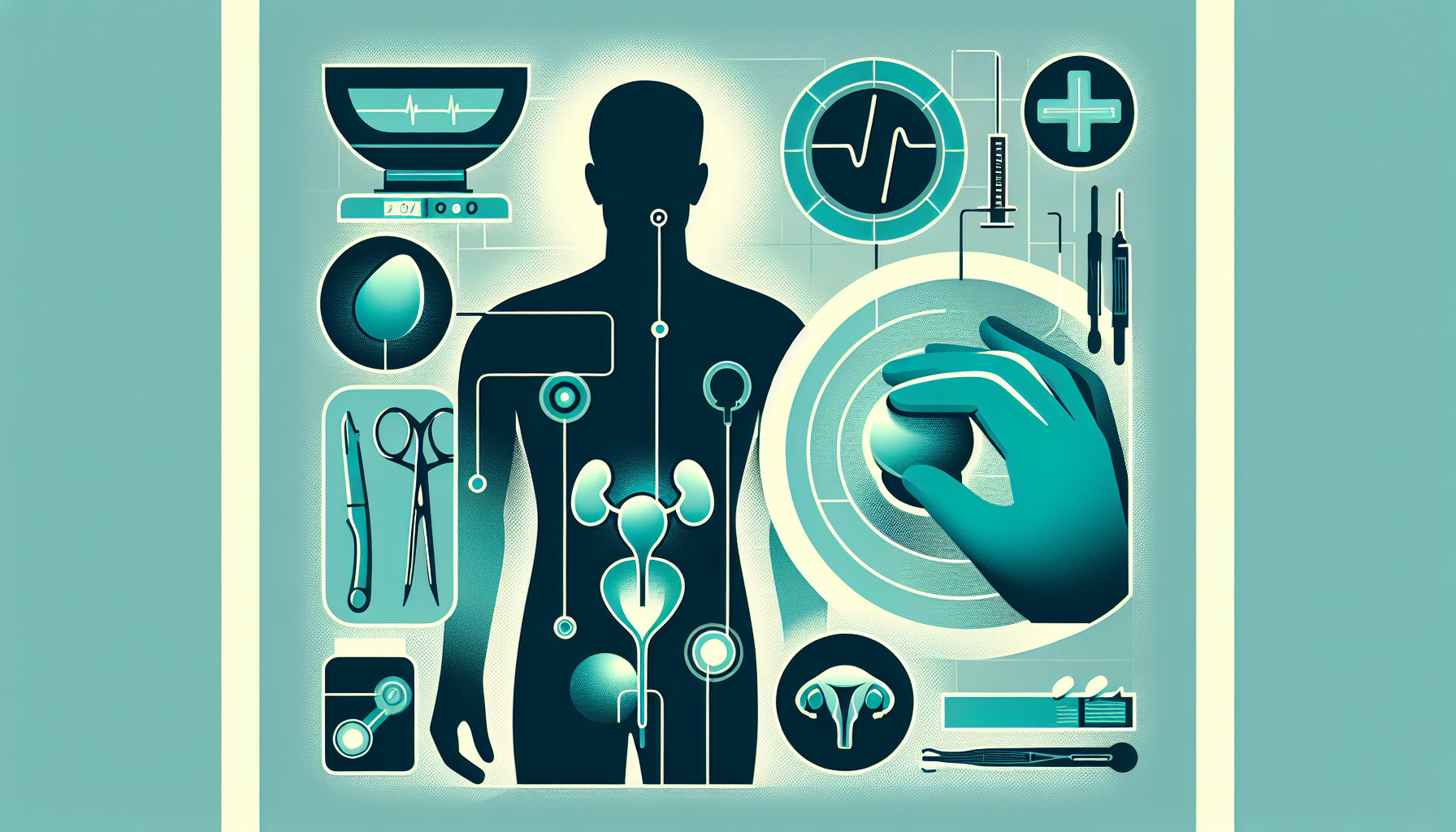Our Summary
This research paper discusses different ways to decrease the risk of infection after a prostate biopsy, a procedure used to diagnose prostate cancer. Topics covered include number and size of biopsies, the method of biopsy, use of nerve block, preparing the rectum through an enema or with disinfectant, and the use of antibiotics. The paper explores the best type of antibiotic to use, how long to use it, the use of multiple antibiotics, and the use of antibiotics based on rectal swab results. The aim is to provide answers on how to best manage these factors to prevent post-biopsy infections.
FAQs
- What strategies have been developed to reduce infectious complications after a prostate biopsy?
- What factors need to be considered when choosing the optimal antibiotic therapy for a prostate biopsy?
- What role does rectal preparation play in reducing infectious complications following a prostate biopsy?
Doctor’s Tip
One important tip a doctor might give a patient about prostate biopsy is to make sure to follow any pre-procedure instructions carefully, including any specific antibiotic regimen that may be prescribed to reduce the risk of infection. It is also important to discuss any concerns or questions with your healthcare provider before the procedure.
Suitable For
Patients who are typically recommended for prostate biopsy include those with elevated prostate-specific antigen (PSA) levels, abnormal digital rectal exam findings, or suspicious imaging results such as a suspicious MRI. Additionally, patients with a family history of prostate cancer or those at high risk for developing prostate cancer may also be recommended for a prostate biopsy. It is important for patients to discuss the risks and benefits of undergoing a prostate biopsy with their healthcare provider before proceeding with the procedure.
Timeline
Before prostate biopsy:
- Patient is informed about the procedure and its risks and benefits by their healthcare provider.
- Patient may undergo blood tests to check for any underlying health conditions that could affect the biopsy procedure.
- Patient may be advised to stop taking certain medications, such as blood thinners, before the biopsy.
- Patient may be given antibiotics to reduce the risk of infection following the biopsy.
During prostate biopsy:
- Patient is typically positioned on their side with their knees drawn up towards their chest.
- Local anesthesia is administered to numb the area around the prostate.
- A biopsy needle is inserted through the rectum or perineum to collect tissue samples from the prostate.
- Multiple tissue samples are usually taken during the procedure.
After prostate biopsy:
- Patient may experience some discomfort or pain in the biopsy area for a few days.
- Patient may notice blood in their urine, stool, or semen for a short period of time after the biopsy.
- Patient may be advised to avoid strenuous activities for a few days following the biopsy.
- Patient may be prescribed antibiotics to reduce the risk of infection after the biopsy.
- Patient will typically follow up with their healthcare provider to discuss the results of the biopsy and any further treatment options.
What to Ask Your Doctor
- What are the risks and benefits of having a prostate biopsy?
- How many biopsies will be taken during the procedure?
- What size needle will be used for the biopsies?
- Will a periprostatic nerve blockade be used to reduce pain during the procedure?
- Should I have a rectal preparation by enema before the biopsy?
- Will the biopsy site be disinfected with povidone-iodine?
- What type of antibiotic will be given before and after the biopsy?
- How long will I need to take antibiotics for after the biopsy?
- Are there any potential complications or side effects of the antibiotics?
- Will a rectal swab be taken to guide antibiotic therapy in case of infection?
Reference
Authors: Pilatz A, Lüdecke G, Wagenlehner F. Journal: Urologe A. 2017 Jun;56(6):759-763. doi: 10.1007/s00120-017-0392-6. PMID: 28455575
